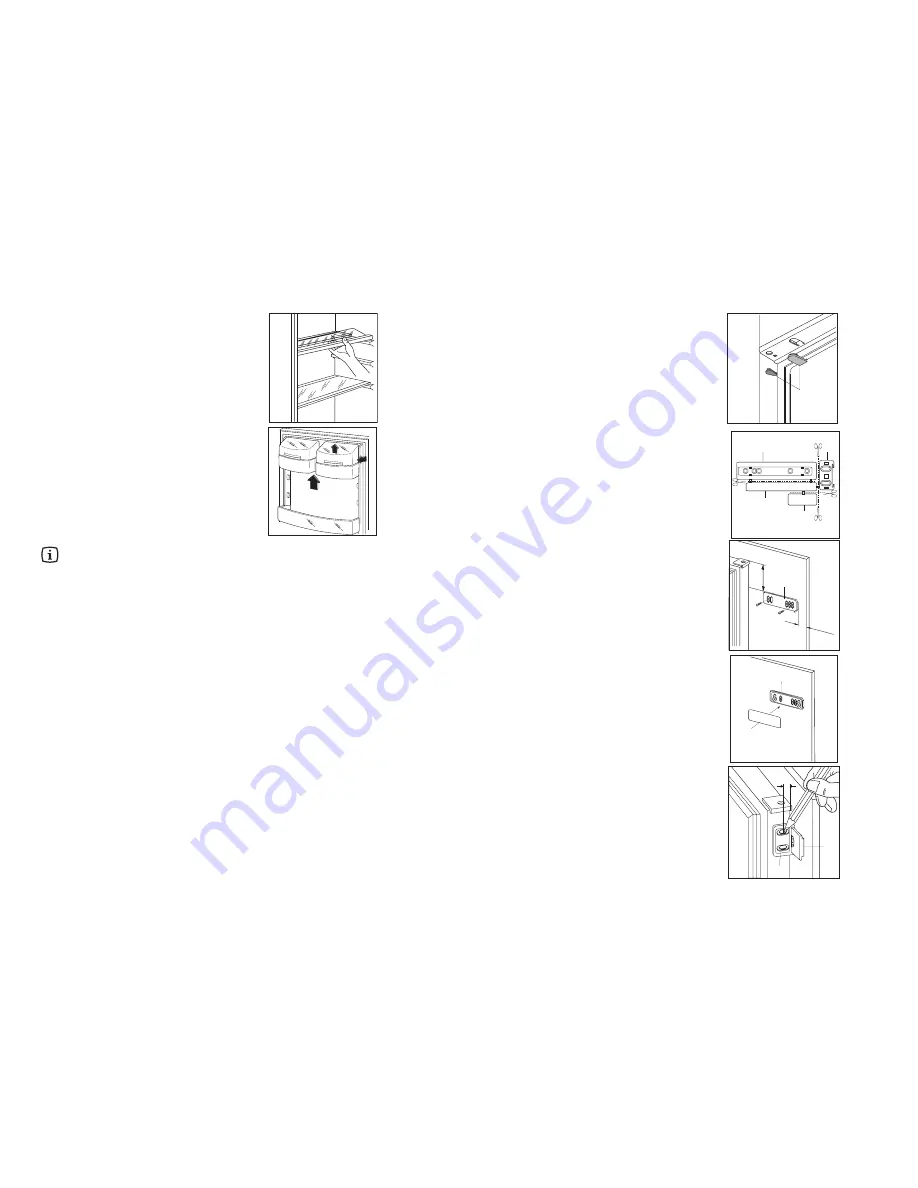
16
•
the freezing process takes 24 hours. No further
food to be frozen should be added during this
period;
•
only freeze top quality, fresh and thoroughly
cleaned, foodstuffs;
•
prepare food in small portions to enable it to be
rapidly and completely frozen and to make it
possible subsequently to thaw only the quantity
required;
•
wrap up the food in aluminium foil or polythene
and make sure that the packages are airtight;
•
do not allow fresh, unfrozen food to touch food
which is already frozen, thus avoiding a rise in
temperature of the latter;
•
lean foods store better and longer than fatty
ones; salt reduces the storage life of food;
•
water ices, if consumed immediately after
removal from the freezer compartment, can
possibly cause the skin to be freeze burnt;
•
it is advisable to show the freezing-in date on
each individual pack to enable you to keep tab of
the storage time;
•
on the inner door or special card (if supplied) you
will find sketches of various animals and food
types together with the recommended storage
time (in months) from the time of freezing;
•
do not put carbonated liquids (fizzy drinks,
etc.) in the freezer compartment as they may
burst.
Hints for freezing
To help you make the most of the freezing process,
here are some important hints:
•
the maximum quantity of food which can be
frozen in 24 hrs. is shown on the rating plate;
HINTS
Movable shelves
The walls of the refrigerator are equipped with a
series of runners so that the shelves can be
positioned as desired.
D338
Positioning the door shelves
To permit storage of food packages of various sizes,
the door shelves can be placed at different heights.
To make these adjustments proceed as follows:
Gradually pull the shelf in the direction of the arrows
until it comes free, then reposition as required.
Hints for refrigeration
Useful hints:
Meat (all types): wrap in polythene bags and place
on the glass shelf above the vegetable drawer.
For safety, store in this way only one or two days
at the most.
Cooked foods, cold dishes, etc..: these should be
covered and may be placed on any shelf.
Fruit and vegetables: these should be thoroughly
cleaned and placed in the special drawer(s)
provided.
Butter and cheese: these should be placed in
special airtight containers or wrapped in aluminium
foil or polythene bags to exclude as much air as
possible.
Milk bottles: these should have a cap and should
be stored in the bottle rack on the door.
Bananas, potatoes, onions and garlic, if not
packed, must not be kept in the refrigerator.
21
D726
B
Apply covers (B) on joint cover lugs and into hinge
holes.
Separate parts A, B, C, D as shown in the figure
PR266
A
B
C
D
Place guide (A) on the inside part of the furniture
door, up and down as shown in the figure and mark
the position of external holes. After having drilled
holes, fix the guide with the screws supplied.
20 mm
A
50mm
PR166
PR33
C
A
Fix cover (C) on guide (A) until it clips into place.
Open the appliance door and the furniture door at
90°. Insert the small square (B) into guide (A). Put
together the appliance door and the furniture door
and mark the holes as indicated in the figure.
Remove the squares and drill holes with ø 2 mm at
8 mm from the outer edge of the door. Place the
small square on the guide again and fix it with the
screws supplied.
8mm
PR167
A
B

























